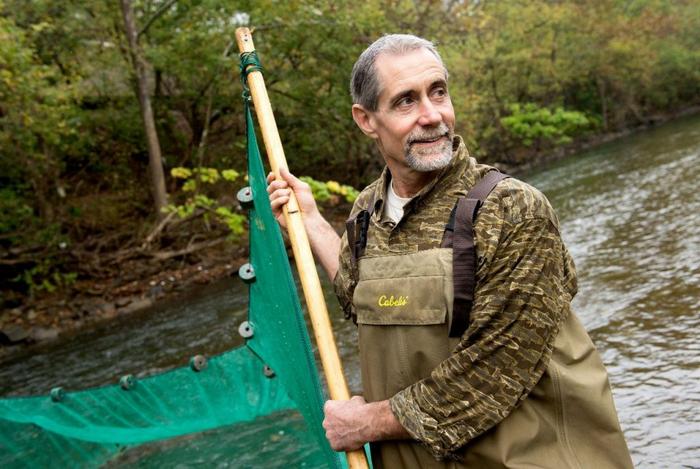The National Science Foundation, the National Institutes of Health, and the National Aeronautics and Space Administration have collectively awarded millions of dollars in grant funding to numerous Virginia Tech researchers who all have one thing in common.

Credit: Virginia Tech
The National Science Foundation, the National Institutes of Health, and the National Aeronautics and Space Administration have collectively awarded millions of dollars in grant funding to numerous Virginia Tech researchers who all have one thing in common.
They were awarded Emerging Social Aspects of Global Change seed funding.
Since 2015, this funding has led to faculty from seven colleges and 15 departments collaborating and engaging in 10 research projects that address the social or policy aspects of major global environmental issues.
Sponsored by Fralin Life Sciences Institute’s Global Change Center and the Institute for Society, Culture, and Environment (ISCE), the seed funding program seeks to support researchers who are interested in tackling major global change issues from both biophysical and sociological perspectives while collaborating with experts in different fields. The seed grants have also yielded partnerships with external stakeholders and innovative research training opportunities for graduate and undergraduate students.
Each year, the Global Change Center and ISCE jointly allocate up to approximately $70,000 in awards that link multiple Global Change Center faculty programs to a wide breadth of faculty to take advantage of unique combinations of expertise at Virginia Tech. Priority is given to grant proposals that illustrate urgent societal or policy implications and have the potential to leverage significant external resources.
With more similarities than differences, the partnership between the institute and the center is a natural pairing.
“The partnership between the Global Change Center and ISCE is a strategic effort to support and encourage collaboration among faculty with expertise in the social sciences, biophysical sciences, and engineering to innovatively address these major global challenges, said Karen Roberto, University Distinguished Professor and executive director of ISCE.
As an investment institute, ISCE supports social science research that addresses critical human and societal concerns impacting the lives of people and places locally and globally. The institute specifically focuses on four thematic areas: global policies and practices, health and human development, risk and resilience, and community and environment.
“Climate change, altered ecosystems, pollution, and emerging infectious diseases are critical human and societal concerns affecting people and environments locally and globally,” Roberto said.
Similarly, the Global Change Center (GCC) views social science as integral to finding and implementing solutions to current global environmental problems that threaten societal well-being.
For example Ashley Dayer, associate professor in the Department of Fish and Wildlife Conservation, and Dana Hawley, professor of biological sciences, started working together on bird feeding several years ago when they received an Emerging Social Aspects of Global Change seed grant.
“Doing research on the way that people and birds affect each other requires an integrated approach from both the social sciences and the life sciences,” said Hawley. “The seed grant we received was critical in bringing together these diverse perspectives on campus and providing support for us to work together to explore new and exciting ideas.”
In November 2022, the duo was awarded a $1.6 million National Science Foundation grant to study human-wildlife interactions through bird feeding. The continental-scale project will tackle the challenge of diversifying the field of participatory science.
“Investments in interdisciplinary teams of faculty are key to solving major environmental challenges that plague society,” said William A. Hopkins, professor of wildlife conservation and director of the Global Change Center. “Our collaboration with ISCE has been enormously successful and has helped spark many long-lasting collaborations among faculty from different colleges.”
Receiving a grant helped Leigh-Anne Krometis unite faculty members from across the university to study environmental links to health in Central Appalachia. From this study, the team was awarded $75,000 to expand and continue the project for another year under the Virginia Tech Global Systems Science Destination Area.
Krometis, associate professor of biological systems engineering in both the College and Engineering and the College of Agricultural and Life Sciences, has since led and participated in water quality projects related to the seed grant studies that have received $3.35 million in external funding from the Appalachian Regional Commission, the National Science Foundation, and most recently the National Oceanic and Atmospheric Administration.
“Successful community-based research requires meaningful partnerships and relationships which take time,” said Krometis. “Seed grants from the GCC and ISCE have given me the time to build trust with communities and the opportunity to give real data to these communities and demonstrate my commitment. Once we have that trust, I can start to find out the real research questions and community needs that wouldn’t normally be readily shared.”
- Julia Gohlke, associate professor of environmental health in the Virginia-Maryland College of Veterinary Medicine, recently received a $1 million grant from NASA, building upon the research funded by a 2017 seed grant.
- Chloé Lahondere, an assistant professor of biochemistry in the College of Agriculture and Life Sciences, and Luis Escobar, assistant professor in the Department of Fish and Wildlife Conservation in the College of Natural Resources and Environment, received seed funding in 2018, but COVID disrupted their project on climate change and the dynamics of mosquito population in Virginia. They have a published paper and grant submission on the horizon.
- Paul Angermeier, professor in the Department of Fish and Wildlife Conservation in the College of Natural Resources, received seed funding in 2016 and 2021 for his projects involving the social impacts of ecological health of water streams, leading to a published journal article, and an invited talk at the 12th National Monitoring Conference.
A complete list of past awardees through these funding initiatives can be found on the Global Change Center Faculty Seed Grant page.




